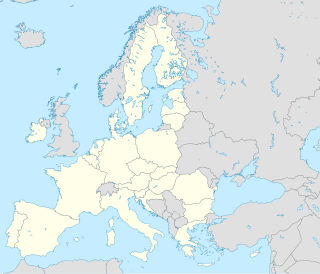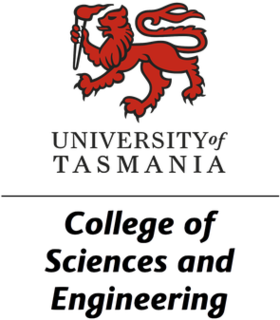Related Research Articles

A community college is a type of educational institution. The term can have different meanings in different countries: many community colleges have an "open enrollment" for students who have graduated from high school. The term usually refers to a higher educational institution that provides workforce education and college transfer academic programs. Some institutions maintain athletic teams and dormitories similar to their university counterparts.
In Australia, technical and further education or TAFE institutions provide a wide range of predominantly vocational courses, mostly qualifying courses under the National Training System/Australian Qualifications Framework/Australian Quality Training Framework. Fields covered include business, finance, hospitality, tourism, construction, engineering, visual arts, information technology and community work.

Victoria University is a public research university based in Melbourne, Victoria, Australia. It is a dual-sector tertiary institution providing courses in both higher education and Technical and Further Education (TAFE). 2016 marked VU's centenary as an educational institution and its 25th anniversary as a university.

Vocational education is education that prepares people to work as a technician or to take up employment in a skilled craft or trade as a tradesperson or artisan. Vocational education is sometimes referred to as career and technical education.

An apprenticeship is a system for training a new generation of practitioners of a trade or profession with on-the-job training and often some accompanying study. Apprenticeships can also enable practitioners to gain a license to practice in a regulated profession. Most of their training is done while working for an employer who helps the apprentices learn their trade or profession, in exchange for their continued labor for an agreed period after they have achieved measurable competencies. Apprenticeship lengths vary significantly across sectors, professions, roles and cultures. In some cases people who successfully complete an apprenticeship can reach the "journeyman" or professional certification level of competence. In other cases they can be offered a permanent job at the company that provided the placement. Although the formal boundaries and terminology of the apprentice/journeyman/master system often do not extend outside guilds and trade unions, the concept of on-the-job training leading to competence over a period of years is found in any field of skilled labor.

Charles Darwin University (CDU) is an Australian public university with a main campus in Darwin and eight satellite campuses in some metropolitan and regional areas. It was established in 2003 after the merger of Northern Territory University, the Menzies School of Health Research, and Centralian College.

RMIT University, formerly known as Royal Melbourne Institute of Technology (RMIT) and Melbourne Technical College, is a public research university based in Melbourne, Australia.

A vocational school is a type of educational institution, which, depending on the country, may refer to either secondary or post-secondary education designed to provide vocational education, or technical skills required to complete the tasks of a particular and specific job. In the case of secondary education, these schools differ from academic high schools which usually prepare students who aim to pursue tertiary education, rather than enter directly into the workforce. With regard to post-secondary education, vocational schools are traditionally distinguished from four-year colleges by their focus on job-specific training to students who are typically bound for one of the skilled trades, rather than providing academic training for students pursuing careers in a professional discipline. While many schools have largely adhered to this convention, the purely vocational focus of other trade schools began to shift in the 1990s "toward a broader preparation that develops the academic" as well as technical skills of their students.

The Australian Qualifications Framework (AQF) specifies the standards for educational qualifications in Australia. It is administered nationally by the Australian Government's Department of Industry, with oversight from the States and Territories, through the Standing Council of Tertiary Education Skills and Employment. While the AQF specifies the standards, education and training organisations are authorised by accrediting authorities to issue a qualification.
TAFE NSW is an Australian vocational education and training provider. Annually, the network trains over 500,000 students in campus, workplace, online, or distance education methods of education. It was established as an independent statutory body under the TAFE Commission Act 1990. The Minister for Regional Development, Skills and Small Business is responsible for TAFE NSW.

The European Centre for the Development of Vocational Training (Cedefop) is an agency of the European Union. Established in 1975, Cedefop is headquartered and located in Thessaloniki region, Greece, and has a Brussels office. Cedefop is the acronym of its French title, Centre Européen pour le Développement de la Formation Professionnelle (C.E.DE.FO.P.). Cedefop supports the development of European vocational education and training (VET) policies and contributes to their implementation.

Tertiary education in Australia consists of both government and private institutions. A higher education provider is a body that is established or recognised by or under the law of the Australian Government, a state, or the Department of Education, Employment and Workplace Relations.
Education in Eswatini includes pre-school, primary, secondary and high schools, for general education and training (GET), and universities and colleges at tertiary level.
Goulburn Ovens Institute of TAFE, also known as GOTAFE, is a Technical and Further Education (TAFE) institute located in the north east region of Victoria, Australia based on the Goulburn and Ovens rivers, and is the largest regional TAFE in Victoria, and a specialist centre for food processing, equine and dairy education.
Dual-sector education is a system of tertiary education that includes substantial amounts of both vocational (skills-based) and higher (academic-based) education in the same institution.
The Rehabilitation Council of India (RCI) was set up as a registered society in 1986. On September, 1992 the RCI Act was enacted by Parliament and it became a Statutory Body on 22 June 1993. The Act was amended by Parliament in 2000 to make it more broadbased. The mandate given to RCI is to regulate and monitor services given to persons with disability, to standardise syllabi and to maintain a Central Rehabilitation Register of all qualified professionals and personnel working in the field of Rehabilitation and Special Education. The Act also prescribes punitive action against unqualified persons delivering services to persons with disability.
Esperance Senior High School is a comprehensive public high day and boarding school, located in Esperance, a regional centre 780 kilometres (485 mi) southeast of Perth, Western Australia.

The Australian Department of Education and Training was a former department of the Government of Australia that was in existence between 2014 and 2019 and which was charged with the responsibility for national policies and programs that help Australians access quality and affordable early childhood education, school education, higher education, vocational education and training, international education and academic research.
VOCEDplus is a free international research database about tertiary education, maintained and developed by staff at the National Centre for Vocational Education Research (NCVER) in Adelaide, South Australia. The focus of the database content is the relation of post-compulsory education and training to workforce needs, skills development, and social inclusion.

The College of Sciences and Engineering is a college of the University of Tasmania that incorporates the School of Natural Sciences, School of Technology, Environments and Design, the Australian Maritime College, the Institute for Marine and Antarctic Studies, and the Tasmanian Institute of Agriculture. The college incorporates science, technology, engineering, and mathematics (STEM) education and research at the University.